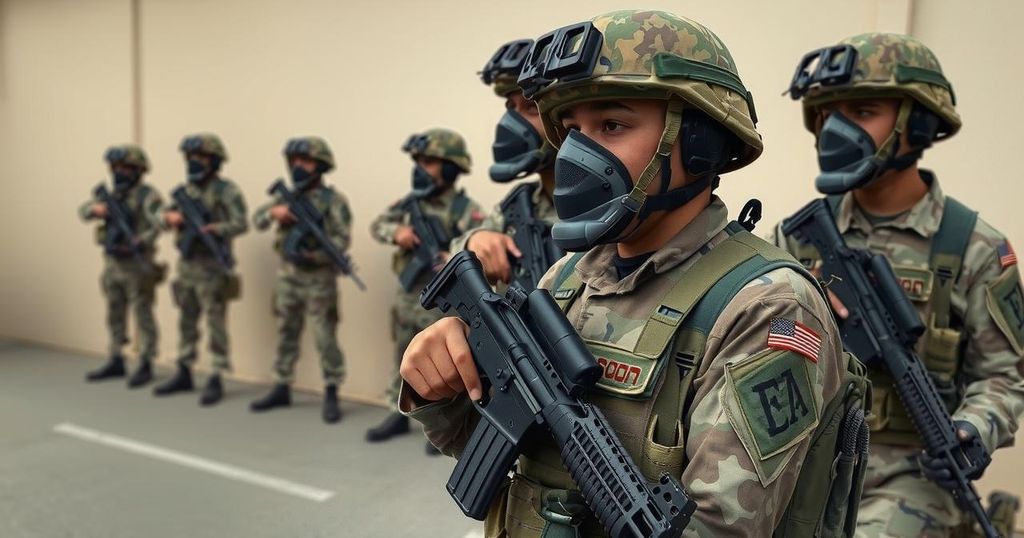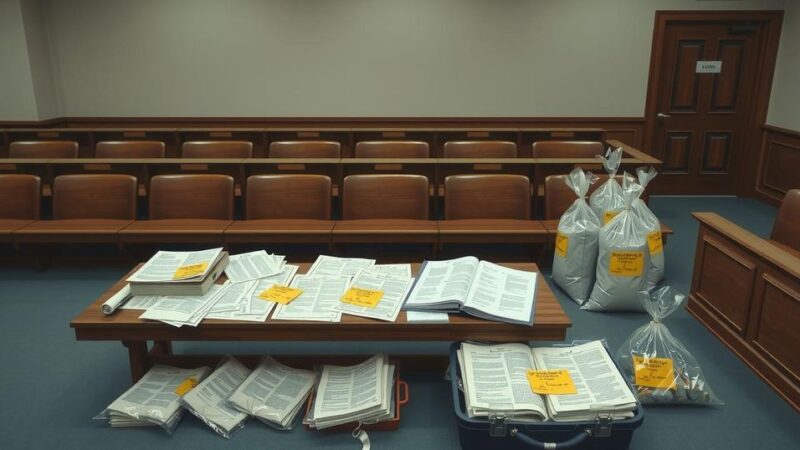The Hind Rajab Foundation (HRF), based in Belgium, has launched legal actions against IDF soldiers for alleged war crimes, specifically targeting an IDF soldier on vacation in Brazil. Their campaigns are characterized by doxxing and legal threats, stemming from accusations of participating in the destruction of civilian structures in Gaza. Under the leadership of Dyab Abou Jahjah and Kareim Hassoun, the HRF’s activities reflect a broader movement to challenge Israeli military actions through aggressive legal strategies and advocacy.
The Hind Rajab Foundation (HRF), established in Belgium, has recently taken legal action against an Israel Defense Forces (IDF) soldier currently on vacation in Brazil. The organization has accused the soldier of involvement in significant demolitions of civilian homes in Gaza, leading to a Brazilian court commencing a probe into alleged war crimes. The HRF remains active in targeting IDF personnel with legal threats and doxing, leveraging content from the soldiers’ social media.
This foundation, which aims to challenge perceived Israeli impunity, has drawn attention for its previous intentions to seek arrests from the International Criminal Court for around 1,000 IDF soldiers. Furthermore, the organization has documented thousands of incidents it claims relate to violations during military operations in Gaza. Founded shortly after the death of a six-year-old girl in Gaza, the HRF is reported to be an extension of the March 30 Movement, which promotes the recognition of acts against humanity in the region.
Dyab Abou Jahjah, the Lebanese-born founder of HRF, has a controversial history of vocal anti-Israel activism and public support for groups like Hezbollah. His remarks often carry significant political implications, and he has celebrated events such as the elimination of key figures within those organizations. Kareim Hassoun, another leading figure in HRF, echoes a strong anti-Israel sentiment, making statements reflecting a refusal to acknowledge Israel as a legitimate state.
As both leaders continue to propagate their ideology, the HRF’s activities—including its campaigns against Israeli military personnel—deepen the existing tensions surrounding the Israeli-Palestinian conflict and highlight the role of non-governmental organizations in the landscape of international law and advocacy.
The Hind Rajab Foundation (HRF) is a relatively new organization that has emerged as a vocal opponent of Israeli military actions in Gaza. Named after a young girl killed in an incident in Gaza, the HRF concentrates on promoting legal actions against alleged war criminals and public figures associated with the Israeli military. Their recent campaign targeting IDF soldiers is part of a broader strategy to raise awareness about the conflict and challenge actions that they define as war crimes. The HRF’s strategy includes doxxing—exposing personal information of individuals—through social media, reflecting a growing trend among advocacy groups within the heavily politicized debate surrounding the Israeli-Palestinian conflict. The leadership, primarily represented by figures like Dyab Abou Jahjah and Kareim Hassoun, possesses a history of controversial and provocative statements regarding Israel, emphasizing their positions against state recognition and their continuous framing of the Israeli-Palestinian situation as one of genocide and colonialism. The complex narratives spun by organizations like HRF serve not only as a means of advocacy but also as significant actors in the legal battles increasingly emerging on the international stage concerning alleged breaches of human rights and wartime conduct.
The Hind Rajab Foundation’s recent legal actions against IDF soldiers exemplify the intersection of advocacy and legal strategy in the context of the Israeli-Palestinian conflict. Led by controversial figures, the foundation’s initiatives raise critical questions not only about the validity of war crimes accusations but also about the broader implications for international law and human rights discourse. By publicizing its campaigns and demanding accountability from military personnel, HRF positions itself as a formidable player in the ongoing debates surrounding accountability and justice in conflict zones.
Original Source: www.jpost.com






